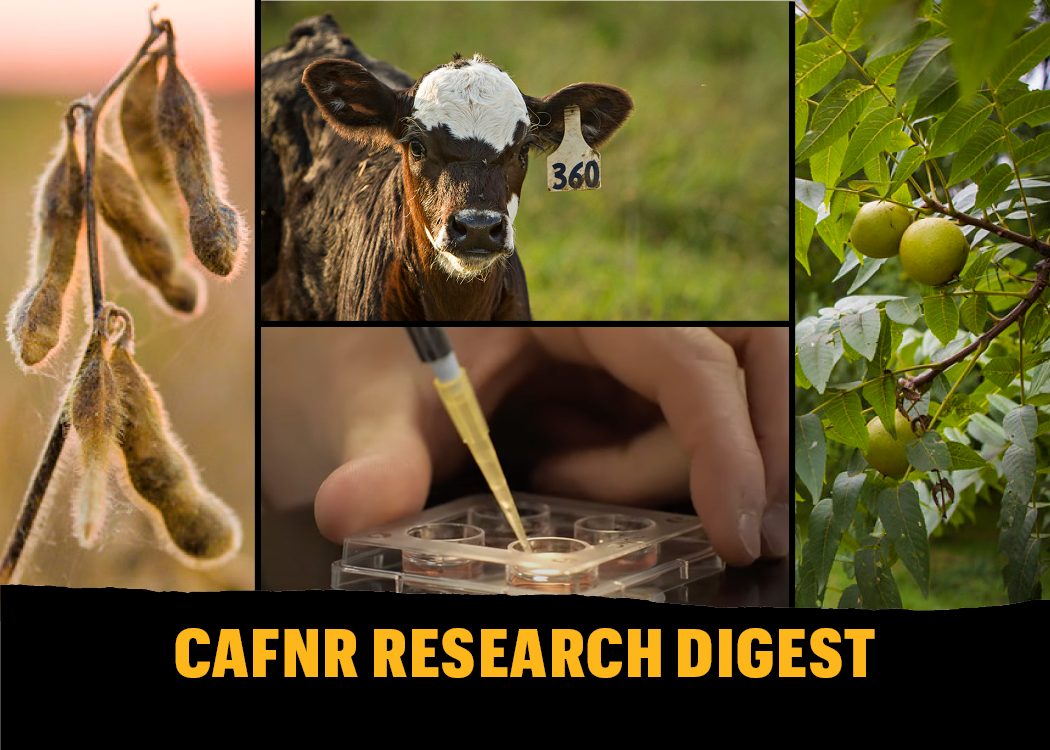|
CAFNR Dissertation Research Improvement Grants (C-DRIG) Winners Announced
The CAFNR Dissertation Research Improvement Grants (C-DRIG) are offered through the CAFNR Office of Research. The C-DRIG grant supports up to $2,000 or partially support dissertation research projects proposed by doctoral students in the College. Eligible students will have completed their coursework and have advanced to candidacy or will advance to candidacy within six months of the C-DRIG awards.
The 2022 C-DRIG recipients are as follows:
Colby Redifer, advised by Allison Meyer, How does nutrient restriction during late pregnancy affect circulating amino acids in beef cows?
Tayaton Pongspikul, advised by Laura McCann, Transaction Costs of Establishing a Desalination Plant
Jose Costa Netto, advised by Felix Fritschi, Soybean Genetic Gain: How did breeding for higher yields change plant hydraulic pathway characteristics?
Jessica Wilson, advised by Alba Argerich, Impacts of legacy mining on stream functional processes in an urban stream
Katy Stoecklein, advised by Sofia Ortega and Randy Prather, Cytokine supplementation to improve developmental competence of bovine embryos following slow-rate freezing
More information about the C-DRIG grant can be found on the CAFNR Office of Research Page.
Alexis Jones Awarded the USDA-NIFA-AFRI Merit Award
Alexis Jones, graduate student in the Division of Animal Sciences, was named the USDA-NIFA-AFRI (National Institute of Food and Agriculture-Agriculture and Food Research Initiative) Merit Award for her abstract submitted for the 2022 Society for The Study of Reproduction Meeting. Jones’ abstract was titled “Identification of Novel Mitophagy Determinants in The Mammalian Cell Free System for the Study of Mitochondrial Inheritance.” Jones will be recognized at The Study of Reproduction Meeting in Spokane, Washington on July 29.
CAFNR faculty members have received the following recent grants (listed by Principal Investigator):
Alba Argerich, 2022 National Lakes Assessment (NLA3) Survey, MO Department of Natural Resources, 4/1/2022- 8/31/2023, $100,390
Kevin Bradley, Evaluating the Impacts of Weed Electrocution of Earthworms, Soil Health, Microbe Activity and Soybean Cyst Nematodes, MO Soybean Merchandising Council, 3/1/2022- 2/28/2023, $70,000
Ryan Milhollin, Training Farms to Navigate Today’s Tight Labor Market, University of Nebraska-Lincoln, 4/1/2022, 9/30/2023, $48,979
|
